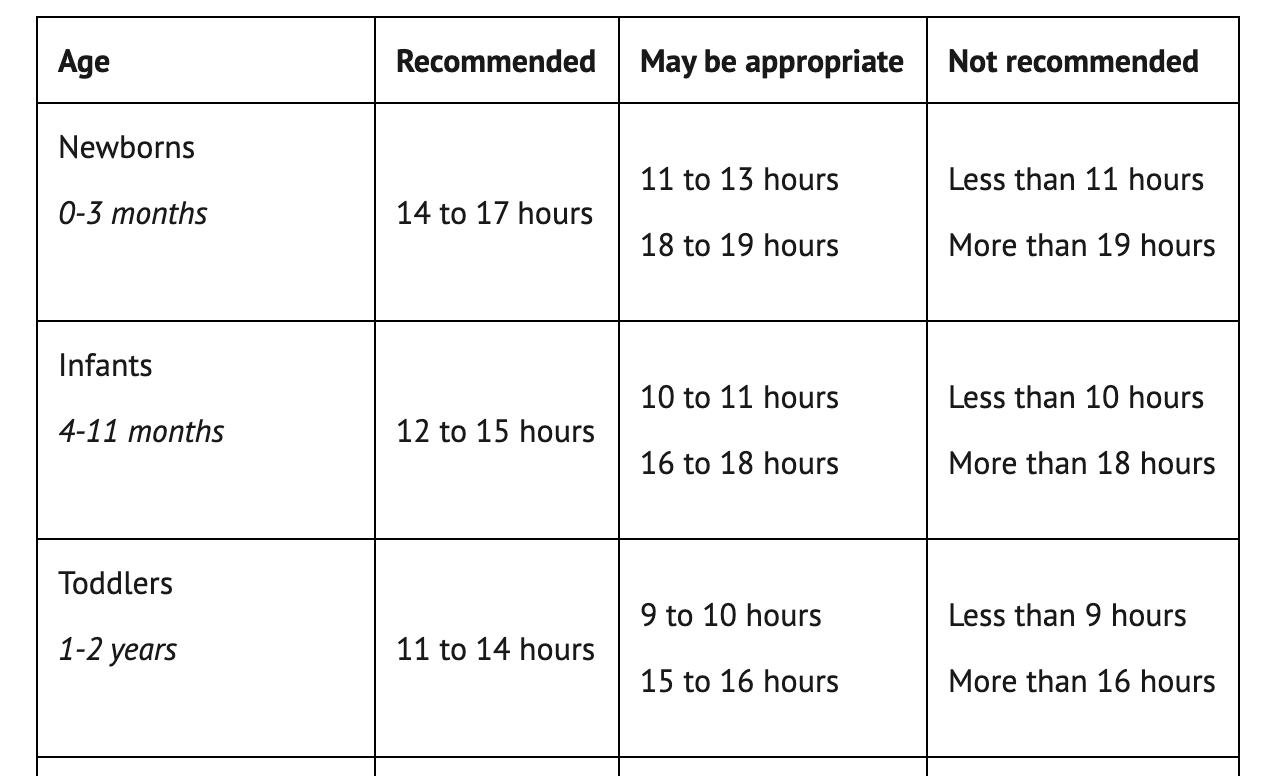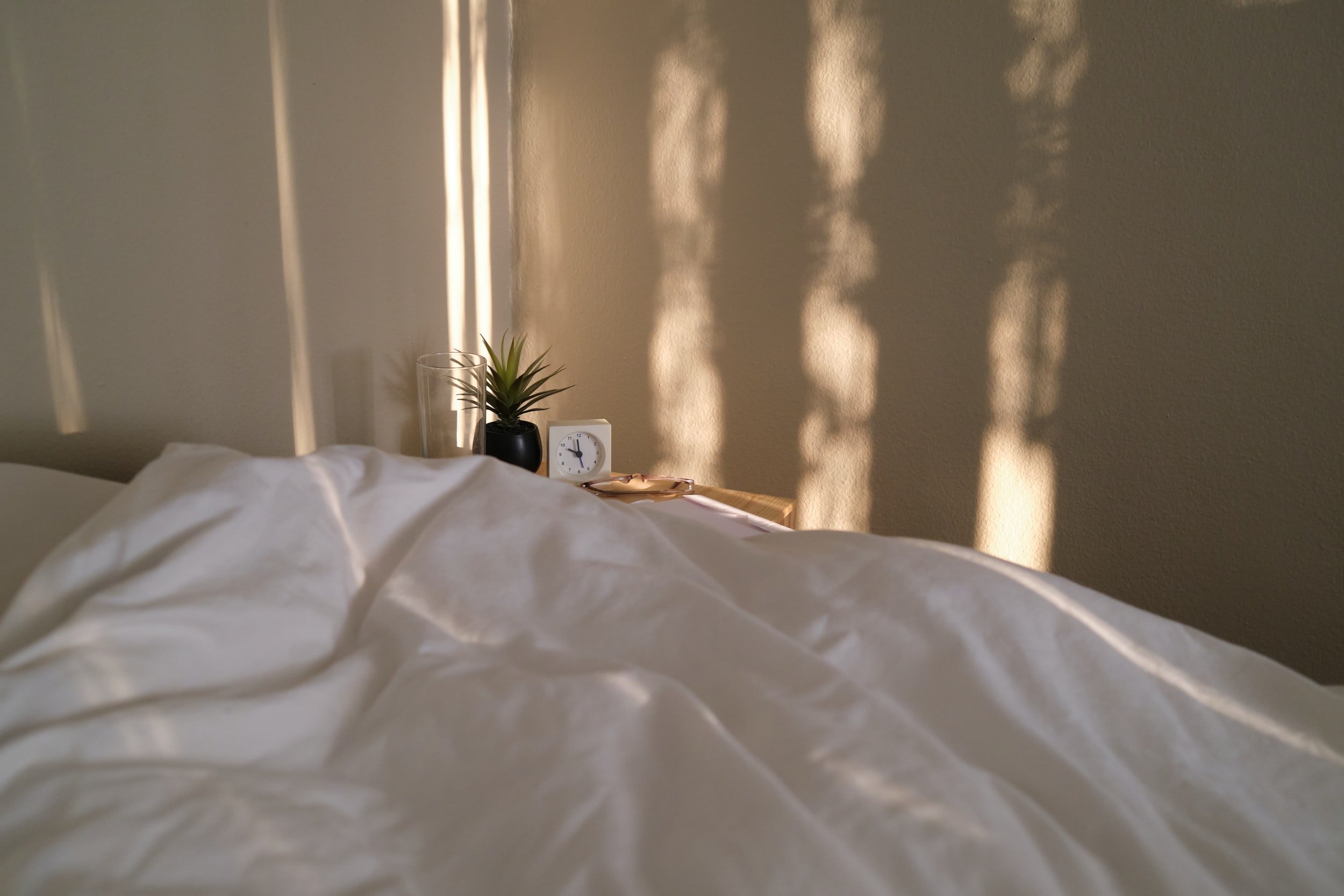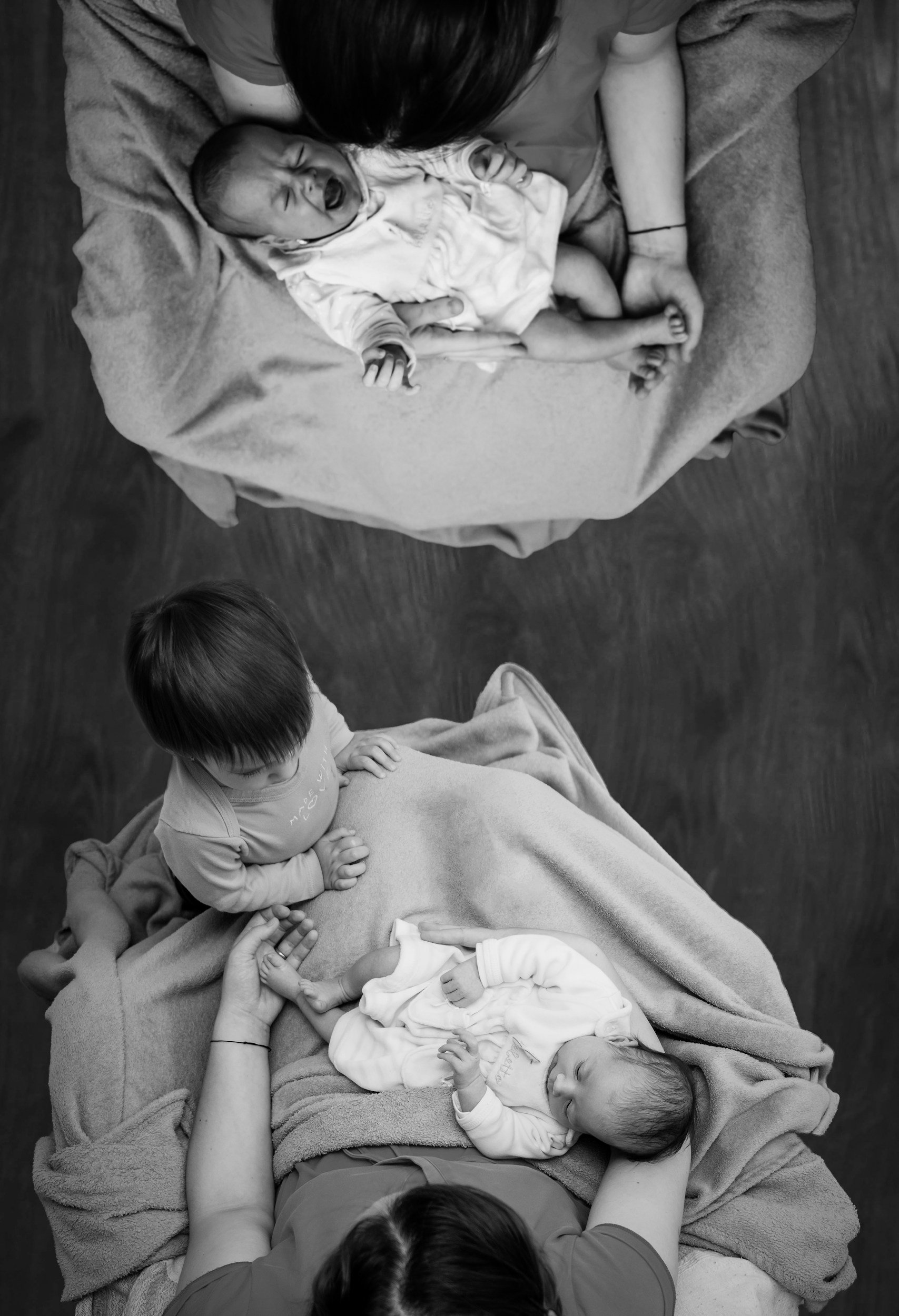I'm Rachael
Mom of 3 & Baby Sleep Expert with Big Sis Energy
& I’VE DONE ALL THE RESEARCH FOR YOU ALREADY.
Better sleep for the entire family
BROWSE COURSES
hey!
Consolidated Sleep for Infants: Is it Necessary to Healthy Brain Development?
May 27, 2021
“Your baby needs consolidated sleep to have healthy brain development” is one of the most pervasive, misleading, and downright scary myths I see out there regarding baby sleep. It’s touted as the flagship reason to justify sleep training. So let’s learn a little bit about what’s *actually* true.

It’s obvious that all humans, including babies, need enough sleep in order to grow and develop normally, no one would question that. But it is total sleep that matters, not whether it’s consolidated or not. We ALL wake lightly between sleep cycles. Not only that, but there is a large variation to how much total sleep each individual truly needs to function optimally, as illustrated by data on averages. However, there’s actually still very little evidence about how much sleep (consolidated or not) is actually required for healthy infant development. The total amount babies sleep per 24 hours varies greatly between individuals but also between cultures.

This table from The National Sleep Foundation illustrates the wide range of average total sleep per 24 hours for babies and toddlers.
Let’s not forget that the reasons babies wake throughout the night are protective. Researchers like Professor James McKenna, who study mother and baby dyads in a sleep lab, assert that wakeful babies are actually being better protected against SIDS. Especially babies who sleep in close proximity to their parents: they have increased arousal throughout the night, and may develop stronger and quicker awakening skills. This becomes important in case the oxygen supply should decrease following a pause in breathing. Shorter durations of sleep can protect infants with arousal deficiencies which are suspected to be involved in SIDS (McKenna 2020).
Consolidated sleep for babies is also not conducive to optimal feeding. Many babies wake between every couple of sleep cycles for the first few months because they’re genuinely hungry. This is nature’s design! Infants have TINY tummies that digest our milk (which, compared to other mammals, is very low in fat) very quickly. In addition, whether they’re breastfed or formula fed, babies are going through the most rapid growth period of their lives in the first months. To illustrate how quickly brains are growing, scientists at the University of California scanned the brains of 87 healthy babies from birth to three months. They saw the most rapid changes immediately after birth – newborn brains grew at an average rate of 1% a day. This slowed to 0.4% per day at the end of the 90-day period. That is HUGE! And all that rapid growth requires a LOT of calories. It’s unreasonable to expect that all of those calories need to be taken in during the day. There simply isn’t enough time. So, babies wake!
In contrast to monophasic sleep habits of adults in industrialized nations (in fact, many cultures still practice the biphasic sleep patterns of hunter gatherer ancestors), babies and young children display “polyphasic sleep” which means that there are many chunks of sleep throughout the day and night, “punctuated by numerous awakenings, often vocal” (Walker, 2017). It’s not until a child is about 12 months that the suprachiasmatic nucleus clock (thought to be concerned with the regulation of physiological circadian rhythms) has started to take over full control. This means that by about a year, most babies are “sleeping through the night” though certainly not all of them! The study that found this reported that by 12 months old, 28 percent of infants weren’t yet sleeping six hours straight at night, and 43 percent weren’t staying asleep 8 hours straight (Pennestri, et al. 2018). Surely close to half of a group displaying the same behavior does not indicate a pathology. Another review of 10 infant sleep studies showed that about 20%–30% of all infants experience night awakenings throughout their first two years of life (Tham, et al. 2017).
When studies showing how important sleep consolidation is to the developing brain and health of humans are brought up by sleep training advocates, it’s important to look at them closely. Most of these studies are actually done on children and even adolescence, NOT babies! Even so, one study done on sleep’s effect on memory consolidation in children found that “sleep quality and duration were not related to children’s task performance (Ashworth, et al. 2014). Studies that do look at infant sleep tend to find sleep is beneficial, of course, but can’t quite pinpoint the aspect of sleep that matters. “Despite the fact that all the reviewed cross-sectional studies showed sleep-associated benefits, there were no consistent findings amongst the studies regarding the component of sleep (i.e. sleep duration, sleep efficiency, night awakenings, etc.) that benefitted cognition” (Tham, et al. 2017).
For all of these reasons, you can see that the fear-mongering around getting your infant to sleep “through the night” or even for a 5-6 hour stretch is baseless. Of course we parents are exhausted. We can’t WAIT for the day our baby does start sleeping through the night! We might even institute some gentle changes to try and move things along. However, sleep is a biological function- it’s not a skill that we need to teach our children. Just like walking and talking, it’s something that comes when the child is supported, set up for success (think things like optimal routines, a calming environment, etc.) and will happen when they are developmentally ready.
Even if we do absolutely nothing, every child will wean and sleep through the night eventually on their own. Don’t worry that your baby’s brain is being harmed or their development stunted because they aren’t sleeping all night yet. Sleep training will not create smarter or more developed babies. So if you’ve got a wakeful little one- you can breathe a sigh of relief!
If you’re looking for all the information you’ll need from the newborn stage through toddlerhood, check out the Newborn Masterclass which is the Essential Baby Sleep Course for New + Expecting Parents OR grab the Baby Bundle to set yourself up for the newborn phase. With this option you’ll get all the great stuff in the Newborn Masterclass PLUS The Ultimate Crib & Bed Guide.
Featured
When daylight saving time ends, we “fall back” one hour, meaning that sunrise and sunset will occur an hour earlier. How will this affect your baby’s sleep?
Responsive sleep tips and support for parents of multiples or twins.
What are floor beds? When to use them? And How to use them?
Books Referenced:
Safe Infant Sleep by Professor James Mckenna
Why We Sleep by Matthew Walker, PhD
References
Ashworth A, Hill CM, Karmiloff-Smith A, Dimitriou D. Sleep enhances memory consolidation in children. J Sleep Res. 2014 Jun;23(3):302-8. doi: 10.1111/jsr.12119. Epub 2013 Dec 16. PMID: 24329882.
Tham, E. K., Schneider, N., & Broekman, B. F. (2017). Infant sleep and its relation with cognition and growth: a narrative review. Nature and science of sleep, 9, 135–149. https://doi.org/10.2147/NSS.S125992
Uninterrupted Infant Sleep, Development, and Maternal Mood
Marie-Hélène Pennestri, Christine Laganière, Andrée-Anne Bouvette-Turcot, Irina Pokhvisneva, Meir Steiner, Michael J. Meaney, Hélène Gaudreau, on behalf of the Mavan Research Team
Pediatrics Dec 2018, 142 (6) e20174330; DOI: 10.1542/peds.2017-4330
binge reads
We think you'll love these
You deserve to the
baby stage, not just "survive it."
And you DON'T have to sacrifice your values, ignore your instincts, or force yourself to follow a method you don't align with just to get your baby back to sleep.
I’m here to help you create a restful, sustainable sleep environment that honors both your baby’s needs AND your own (without the stress OR the guilt!) because, no, you don’t have to choose between the two.
enjoy!
BABY SLEEP COURSES →
BABY SLEEP CONSULTS →
Wish you could help your baby sleep better without resorting to sleep training? Download my FREE guide to a good night’s sleep and learn 8 simple, science-backed tips for supporting your child’s needs.
Traditional sleep training methods don’t have to be your solution to better sleep.
SLEEP TRAINING ISN’T THE ONLY WAY TO GET GOOD SLEEP
Hey, I'm Rachael and Hey, Sleepy Baby is for parents who want to get their nights back, without sleep training their babies.
NO ONE TOLD US POD
explorING the untold truths of parenting





